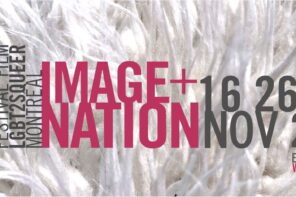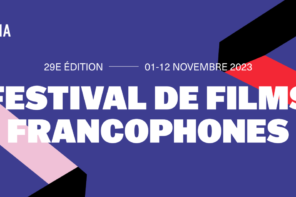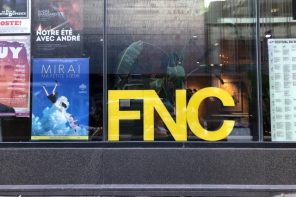From October 26 to November 4, the 8th Annual South Asian Film Festival took place in Montréal, at Concordia University. There were 26 films shown in total, including both short films and full length features. The event was sponsored by the Kabir Centre for Arts and Culture, an organization which strives to promote awareness and appreciation of South Asian culture in Canada.
The films shown covered cultural themes and current issues in regions including: Bangladesh, Pakistan, India, and Nepal, as well as the diaspora of people from those regions to countries like the USA, Canada, and the UK. The films were shown in a variety of South Asian languages, including Hindi, Urdu, Sindhi, French, Bengali, Marathi, Nepali, Dari, Punjabi, Tamil, and Sinhalese, along with several films in English and French, and one silent short film, “Sisak,” by Faraz Arif Ansari.
With each showing, there was an accompanying panel discussion with the filmmaker or with experts on the material showcased. This included graduate students and professors from local colleges and universities. During the panels, audience members were given opportunities to ask questions and make comments about the film itself or its subject matter.
“When programming the festival, we want to encourage debate and highlight issues but at the same time, I’d like to add that our films do come from a certain cultural context… I would urge people to not just think of them as ‘foreign films,” says Kanita Ahmed, the Associate Director of the South Asian Film Festival of Montreal. “The fascinating stories and strong voices in these films transcend geographic and cultural divides and I am sure they will appeal to all Montrealers at a human level.”
Armed With Faith
One of the stories told through film was “Armed With Faith”, a documentary about the lives and work of a bomb disposal squad in the KPK region of Pakistan. This region, home to Peshawar, is one of the areas in Pakistan most subject to terrorist attacks. “Armed with Faith” illustrated the struggles of performing an incredibly dangerous and necessary task, and balancing that with home and family life. As Aqsa Ijaz, one of the film’s panelists and a PhD student in Persian and Urdu Literature at McGill, describes it, “these films were not [just] movies, they were lived experiences.” The bomb diffusers risk life and limb to handle explosives that most people are afraid to even touch, and in the process, have saved many lives. The film exposed the insufficiency of pay and equipment that these men are given, despite the importance of their jobs. In addition, interviews with family members showed that they take pride in the heroism of the bomb disposal squad, but deal with constant anxieties about the jeopardy they put themselves in. The members of the team were shown as heroes, but are often not adequately acknowledged in their home countries, much less in the Western World.
The bomb diffusers risk life and limb to handle explosives that most people are afraid to even touch, and in the process, have saved many lives.
The theme of untold stories was one that expanded into the afternoon screening on October 28, which was entitled Silenced Voices. It included two films, Perween Rahman:The Rebel Optimist, by Mahera Omar; and Salam: The First ****** Nobel Laureate, by Anand Kamalakar, Omar Vandal, and Zaker Thaver. Both films centered around the lives of Pakistani visionaries whose work in their fields were never fully recognized.
Diaspora in Discussion
The second and final weekend of the film festival began with the ‘diaspora panel’, an annual event which invited all of the film makers at the festival who are working outside of the respective regions they focus on. “A diaspora voice is an important voice for the quest of peace and hope. Sometimes this space of being in an adopted land, or a place of birth for the second and third generation of immigrant parents allows us to question several social, political, cultural constructs,” explained Dipti Gupta, the Director of the South Asian Film Festival of Montreal, “The diaspora panel, for [which] we devote an entire day at our festival, raises important issues that are important to the filmmakers locally and globally. This panel is one that we plan to program each year so diaspora filmmakers can be encouraged to have a platform where they can showcase their work.”
The diaspora panel on November 3 was followed by four films each created by filmmakers living in New York, Toronto, and Mississauga. It was moderated by Ameesha Joshi, a Canadian filmmaker who received a MFA at Concordia University and is known for her film “With This Ring,” which was featured at the Mumbai International Film Festival.
Among other notable showings were: Ask the Sexpert, by Vaishali Sinha; 3 Seconds Divorce, by Shazia Javed; Déchirements, by Raymonde Provencher; and Cake, by Asim Abbasi, which will be Pakistan’s submission for nomination of Best Foreign Film at the 91st Academy Awards.







